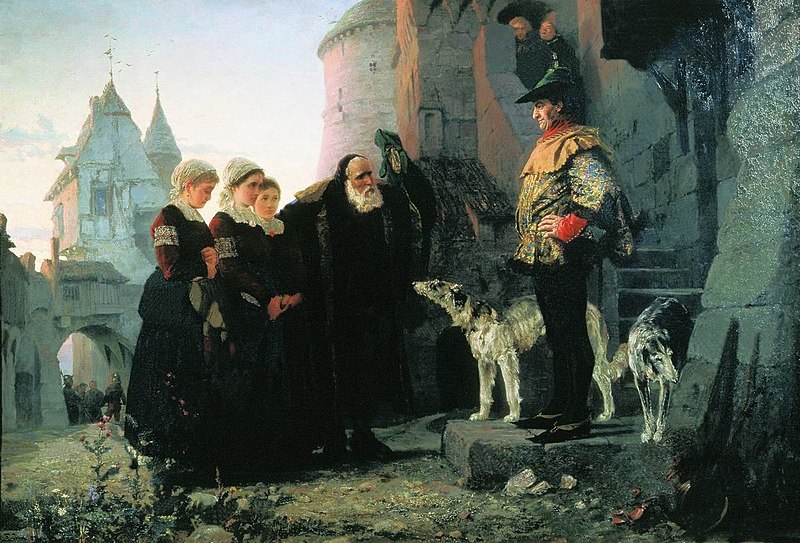Prima Nocta

In the annals of history and popular culture, there exists a controversial concept known as “prima nocta,” a Latin term meaning “first night.” This historical practice, often depicted in literature and film, suggests that during medieval times, feudal lords had the purported right to claim the virginity of their subjects’ brides on their wedding night. However, as with many historical topics, the reality behind prima nocta is far more complex than the simplistic narratives often presented.
Prima nocta has captured the imagination of storytellers for centuries, featuring prominently in works such as the epic poem “The Song of Roland” and Mel Gibson’s film “Braveheart.” These portrayals depict feudal lords as tyrannical figures, wielding absolute power over their subjects’ lives and liberties. Yet, historical evidence supporting the widespread practice of prima nocta remains elusive.
The origins of prima nocta are shrouded in ambiguity, with historians debating its existence and prevalence. While some argue that the practice was indeed sanctioned by feudal law, others contend that it was largely a myth propagated to instill fear and obedience among the peasantry. The absence of concrete evidence, such as legal statutes or official records, further complicates attempts to ascertain the truth about prima nocta.
One of the primary challenges in unraveling the myth of prima nocta lies in separating historical fact from literary embellishment. Much of what is known about medieval society is derived from literary sources, which often prioritize drama and spectacle over accuracy. Consequently, depictions of prima nocta in literature and film may exaggerate its prevalence and significance, perpetuating misconceptions about the past.
Table of Contents
ToggleComplexitie
The feudal system itself was characterized by complex power dynamics and social hierarchies. While lords wielded considerable authority within their domains, their power was not absolute, and they were subject to various constraints, including customary law and the influence of the church. The idea that lords could freely exercise the right of prima nocta without facing resistance or repercussions overlooks the complexities of medieval society.
Historical Inaccuracies
The notion of prima nocta raises ethical and moral questions that extend beyond historical inquiry. The idea of a lord claiming sexual entitlement over his subjects’ brides reflects patriarchal attitudes and reinforces the subjugation of women. By scrutinizing the myth of prima nocta, we confront not only historical inaccuracies but also enduring societal norms that perpetuate gender inequality.
Conclusion
The concept of prima nocta remains a contentious and enigmatic aspect of medieval history. While it continues to captivate popular imagination, its veracity is clouded by historical ambiguity and literary embellishment. By critically examining the evidence and contextualizing it within the broader social and cultural landscape of the Middle Ages, we can gain a more nuanced understanding of this complex phenomenon. Ultimately, the myth of prima nocta serves as a reminder of the importance of interrogating historical narratives and challenging entrenched beliefs to uncover the truth about the past.





